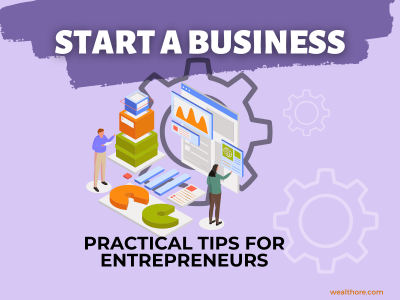Investing in African startups is not just a financial opportunity; it’s a chance to be part of a vibrant and rapidly evolving landscape that is transforming the continent. As the African startup ecosystem experiences unprecedented growth, fueled by innovation in sectors like fintech, agritech, and health tech, investors are increasingly recognizing the potential for high returns and meaningful impact. But diving into this dynamic market requires a discerning eye and a strategic approach. In this post, we will explore how to find and evaluate promising African startups, ensuring that your investment not only thrives financially but also contributes to the greater good.
In this post, we will guide you through the process of identifying and evaluating promising African startups for investment. From understanding the unique characteristics of the African market to conducting thorough due diligence, this article will provide you with key insights to make informed decisions.
Understanding the African Startup Landscape
Before diving headfirst into the African startup scene, it is crucial to develop a solid understanding of the continent’s market dynamics. Africa is incredibly diverse, with each region presenting its own set of opportunities and challenges.
For instance:
- East Africa is a hotbed for fintech innovation, particularly with the rise of mobile money services like M-Pesa in Kenya.
- West Africa, led by Nigeria, is home to some of the continent’s fastest-growing tech companies, especially in the areas of e-commerce and digital payments.
- Southern Africa has a strong foundation in resource-based industries, but there’s also a growing interest in renewable energy and technology-driven solutions.
Other factors you must also consider before investing in African startups are:
- Regulatory Environment: Regulations vary significantly across countries, impacting how businesses operate.
- Infrastructure: Startups in certain regions face challenges related to inadequate infrastructure, from unreliable internet to poor transport networks.
- Cultural Context: Understanding local consumer behavior and cultural nuances is key to identifying startups that can effectively scale.
By researching and staying up-to-date on the different market dynamics, investors can better navigate these regional variations and make more informed investment decisions.
Where to Find Promising African Startups
Identifying promising startups in Africa requires a proactive approach. Here are some of the best avenues for discovering high-potential ventures:
1. Startup Events and Incubators
Startup incubators, accelerators, and industry events are great places to find emerging startups. Events such as AfricaCom, Seedstars Africa, and Afrolynk showcase innovative startups and provide opportunities for networking with founders and other investors. Additionally, incubators like Nailab in Kenya and iHub in Nigeria are nurturing early-stage startups, offering mentorship and support.
2. Online Databases and Directories
There are several online platforms that compile databases of African startups. Tools such as:
- VC4A: This platform provides a comprehensive list of African startups, filtering by industry, location, and funding stage.
- Briter Bridges: This offers detailed reports and insights into the African startup ecosystem.
- Africa Business Pages: A directory of businesses across various sectors, including emerging startups.
These databases can help you discover early-stage ventures and assess their potential for investment.
3. Local Venture Capital Networks
Connecting with local venture capital firms and angel investor networks is another excellent way to find promising startups. African VCs often have deep local knowledge and access to early-stage deal flows. Engaging with these networks can also provide valuable market intelligence and introductions to vetted startups.
4. University Research Hubs
Many African universities have vibrant research and innovation hubs that spin out promising startups. For example, universities like Stellenbosch University in South Africa and Strathmore University in Kenya have produced several startups in the fields of agritech, fintech, and health tech.
5. Social Media and Online Communities
Keep an eye on social media platforms like LinkedIn and Twitter, as well as online communities such as TechCabal and Disrupt Africa. By following relevant hashtags and joining startup-focused forums, you can stay updated on emerging trends and discover ventures that may be flying under the radar.
Evaluating Investment Potential: Key Due Diligence Factors
After identifying promising startups, the next step is to conduct a thorough evaluation. This due diligence process involves assessing several key factors:
1. Problem and Solution Fit
The first question to ask is: Does the startup solve a real problem in the African market? The most successful startups are those that address significant pain points and offer solutions that are both innovative and scalable. The African market is vast and varied, so it’s essential to ensure that the startup’s solution is tailored to the specific needs of its target audience.
2. Strength of the Team
A startup’s success often hinges on the strength of its founding team. Assess the experience, expertise, and track record of the founders. Do they have deep domain knowledge? Have they successfully launched ventures before? Look for a team that demonstrates passion, resilience, and the ability to execute their vision.
3. Market Size and Opportunity
A startup might have an exciting product, but does the market offer enough growth potential? Conduct a market analysis to determine whether the startup operates in a market that is large enough to support significant scaling. Evaluate factors such as the target market’s size, growth rate, and competitive dynamics.
4. Traction and Metrics
A startup’s current traction provides insight into its potential for success. Look at key metrics such as user growth, revenue, and customer retention. High traction demonstrates that the product has market demand and that the startup is on the right track.
5. Competitive Landscape
Understand the competitive environment in which the startup operates. Is the startup differentiated from its competitors? Does it have a clear value proposition that sets it apart in a crowded market? Evaluating the startup’s strategy for maintaining a competitive edge is critical for long-term success.
6. Financial Projections and Unit Economics
Scrutinize the startup’s financial projections and unit economics. Are the financial assumptions realistic? Do they have a clear path to profitability? It’s important to understand how the startup plans to generate revenue and manage costs in order to achieve sustainable growth.
7. Regulatory and Legal Compliance
Ensure that the startup operates within the legal framework of its target market. Non-compliance with local regulations can pose serious risks to both the startup and its investors. Investigating the startup’s regulatory standing is a vital step in the due diligence process.
Investing for Impact: Beyond Financial Returns
Investing in African startups offers more than just the potential for financial returns—it also provides the opportunity to make a positive impact. Many startups across the continent are tackling pressing social issues, from improving access to education and healthcare to advancing financial inclusion and sustainability. By aligning your investment strategy with impact goals, you can contribute to Africa’s development while building a profitable portfolio.
Startups in sectors such as agritech, healthtech, and cleantech are particularly well-positioned to deliver both financial returns and social impact. These ventures often address fundamental challenges, such as food security, healthcare access, and renewable energy, making them attractive for impact-driven investors.
Conclusion
In conclusion, investing in African startups is an exciting venture that offers the potential for significant returns while also making a positive impact on communities and economies across the continent. By understanding the unique challenges and opportunities within the African startup ecosystem and conducting thorough due diligence, you can identify promising ventures that align with your investment goals. As you embark on this journey, consider the broader implications of your investments and the potential to drive change. For more insights and resources on making informed investment decisions, visit Wealthore.com and take the next step in your investment journey.





[…] Diligence African Startups Investment Opportunities Finding and Evaluating Promising African Startups for Investment October 21, […]